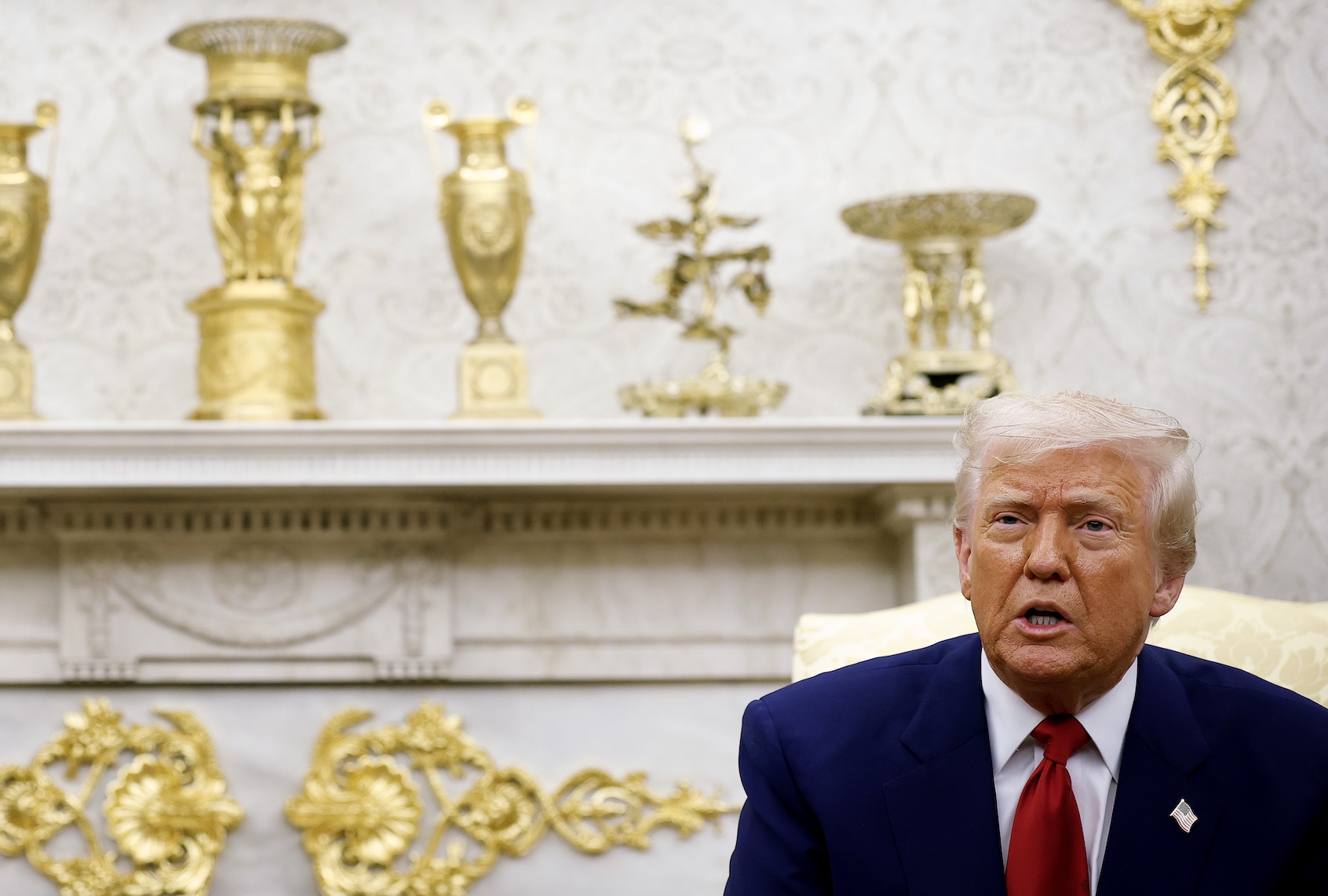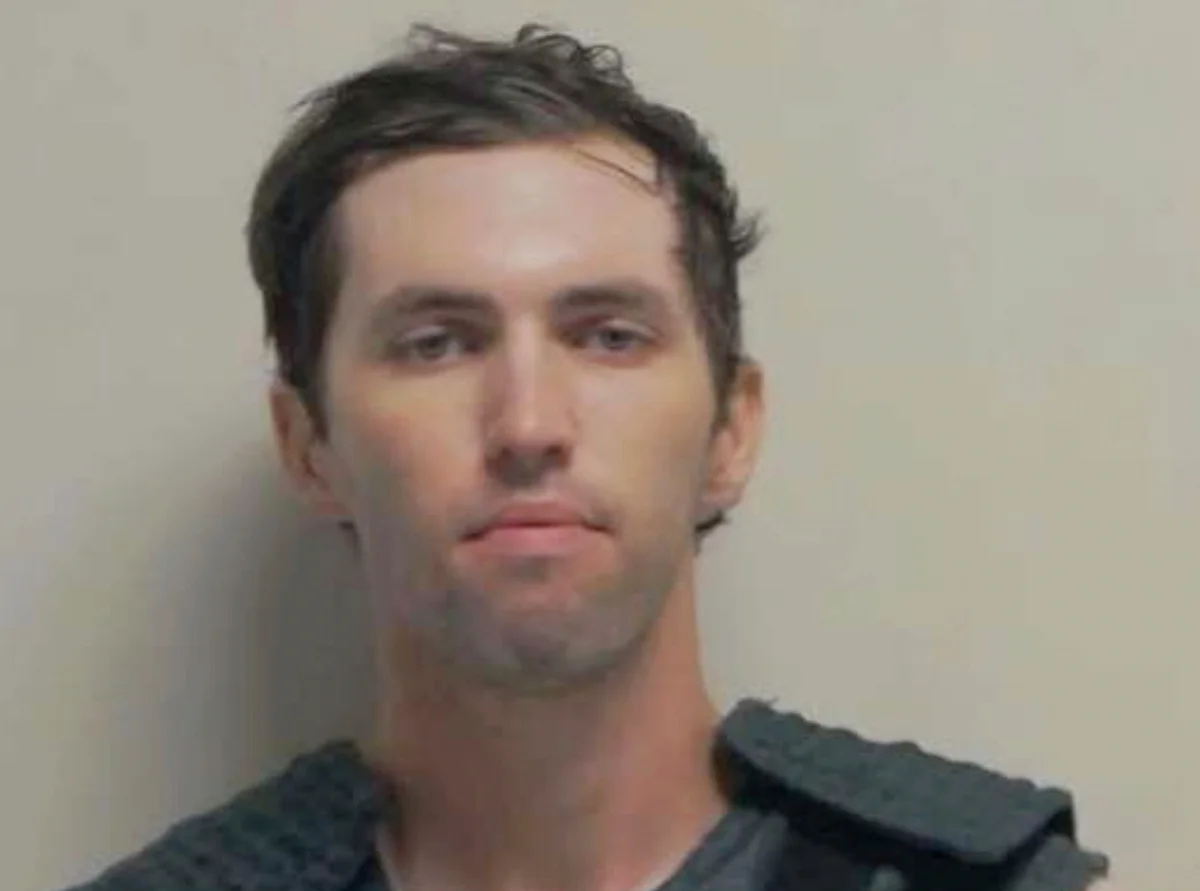By The Week UK
Copyright theweek

SUBSCRIBE & SAVE
Less than $3 per week
View Profile
The Explainer
Talking Points
The Week Recommends
Newsletters
From the Magazine
The Week Junior
Food & Drink
Personal Finance
All Categories
Newsletter sign up
the explainer
Christian Brückner: why prime suspect in Madeleine McCann case can refuse Met interview
International letter of request rejected by 49-year-old convicted rapist as he prepares to walk free
Newsletter sign up
Christian Brückner at the Landgericht Braunschweig state courthouse last year, where he was cleared of sexual offences unrelated to his existing sentence
(Image credit: Alexander Koerner / Getty Images)
The Week UK
16 September 2025
The prime suspect in the disappearance of Madeleine McCann has refused to be interviewed by the Metropolitan Police, just days before he is due to be released from a German prison.
Christian Brückner, 49, who denies any involvement in the case, remains the focus of investigations by British, German and Portuguese police nearly two decades on from the three-year-old’s kidnapping, which attracted global attention.
Described by The i Paper as a “drifter and a petty criminal”, Brückner was just a teenager when, in 1994, he was first convicted of sexual abuse of a child. A year later he fled to Portugal to escape custody before returning to Germany in 1999 to finish his sentence.
Escape your echo chamber. Get the facts behind the news, plus analysis from multiple perspectives.
SUBSCRIBE & SAVE
Sign up for The Week’s Free Newsletters
From our morning news briefing to a weekly Good News Newsletter, get the best of The Week delivered directly to your inbox.
From our morning news briefing to a weekly Good News Newsletter, get the best of The Week delivered directly to your inbox.
He returned intermittently to Portugal after his release in 2000 and is currently serving a seven-year sentence for the rape of a 72-year-old American tourist in Praia da Luz in 2005, two years before McCann disappeared from the same Algarve town.
In October last year, Brückner was cleared by a German court of unrelated sexual offences, alleged to have taken place in Portugal between 2000 and 2017, and is due for release on Wednesday.
Why is he a suspect?
In 2020, Brückner was named as an official suspect in the McCann case by the German authorities.
The three-year-old disappeared from the Praia da Luz resort in 2007, sparking one of the most high-profile missing persons investigations of recent decades. The Met’s investigation, named Operation Grange, has cost more than £13 million.
Sign up for Today’s Best Articles in your inbox
A free daily email with the biggest news stories of the day – and the best features from TheWeek.com
Contact me with news and offers from other Future brandsReceive email from us on behalf of our trusted partners or sponsorsBy submitting your information you agree to the Terms & Conditions and Privacy Policy and are aged 16 or over.
Brückner has always denied any involvement in the case and has never been charged, despite evidence he was in the area at the time.
German, Portuguese and British police have carried out a number of searches over the years, most recently in June when officers scoured 120 acres of scrubland east of Praia da Luz where Brückner was known to have spent time. Despite repeated efforts, authorities have found no trace of McCann or evidence directly tying her disappearance to Brückner. But they remain convinced he was involved, a claim backed up by a “former associate”, who told ITV News this week that he was “100% sure” Brückner had a hand in the kidnapping.
Speaking to the BBC in August, Hans Christian Wolters, the lead German prosecutor investigating the disappearance, said Brückner “is not just our number one suspect, he’s the only suspect. There is no one else.
“We have evidence which speaks against [Brückner], which indicates that he is responsible for the disappearance and the death of Madeleine,” he said. “We haven’t found anything in the last five years that exonerates [him]. We found evidence that strengthens our case. But in our view, it’s not strong enough to make a guilty verdict likely, and that’s why so far we couldn’t charge him or apply for an arrest warrant.”
What happened with the Met?
With Brückner due to be released on Wednesday, the Met Police had requested an interview that “for legal reasons” could only be done via an international letter of request, which he subsequently refused.
DCI Mark Cranwell, the senior investigating officer for Operation Grange, confirmed the German “remains a suspect in the Metropolitan Police’s own investigation” but “in the absence of an interview, we will nevertheless continue to pursue any viable lines of inquiry”.
German law enforcement authorities have already voiced concern that Brückner will soon leave prison and could flee the country, with Wolters saying the expectation was that he would “commit further crimes”.
Explore More
Metropolitan Police
The Week UK
Social Links Navigation
Angela Rayner: the rise and fall of a Labour stalwart
In the Spotlight
Deputy prime minister resigned after she underpaid £40,000 in stamp duty
Crossword: September 16, 2025
The Week’s daily crossword
Sudoku medium: September 16, 2025
The Week’s daily medium sudoku puzzle
You might also like
What to do if your phone is stolen
The Explainer
An average of 180 phones is stolen every day in London, the ‘phone-snatching capital of Europe’
The Met police’s stop and search overhaul
The Explainer
More than 8,500 Londoners have helped put together a new charter for the controversial practice
Germany’s trial of the century: the plot to topple Scholz
In the Spotlight
Elderly aristocrat Heinrich XIII Prince Reuss makes an incongruous terrorist, but prosecutors will argue Reichsbürger coup plan was deadly serious
Scotland Yard, Gaza and the politics of policing protests
Talking Point
Met Police accused of ‘two-tier policing’ by former home secretary as new footage emerges of latest flashpoint
Can the Met Police heal its relationship with the Black community?
Police chiefs accused of not doing enough to address reported institutional racism
The Red Army Faction: German fugitive arrested after decades on run
In the Spotlight
Police reward and TV appeal leads to capture of Daniela Klette, now 65
Does decriminalising drugs really work?
Today’s Big Question
Oregon experiment labelled a ‘disaster’ but advocates say time is needed to embed reforms after 50 years of the war on drugs
Why police are downing firearms after the Chris Kaba murder charge
The Explainer
Army drafted in after scores of armed Met officers ‘revolt’ over charging of colleague
View More ▸
Contact Future’s experts
Terms and Conditions
Privacy Policy
Cookie Policy
Advertise With Us
The Week is part of Future US Inc, an international media group and leading digital publisher. Visit our corporate site.
Future US, Inc. Full 7th Floor, 130 West 42nd Street



